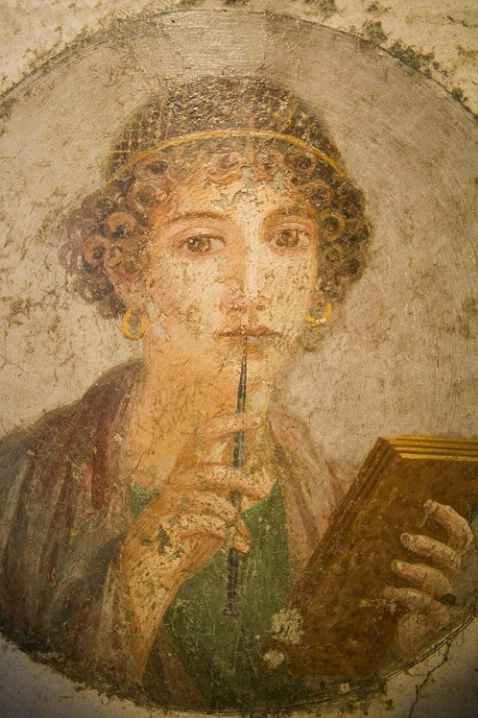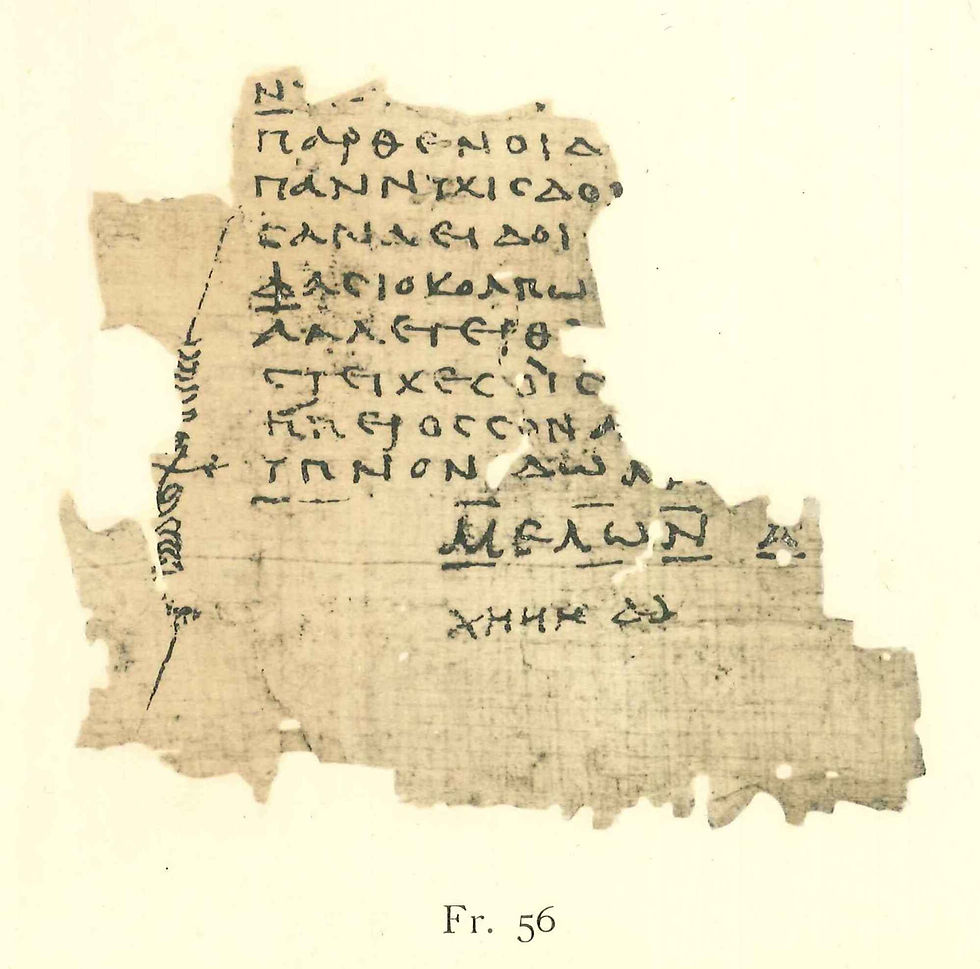New Poem on Sappho
- Simon P. Clark

- Feb 1, 2021
- 2 min read

Sappho was a poet, who wrote circa 600BC, and little of her work has survived into the present day and little is known of her life and about her personally. The fragments of her writings that we do have, have formed many an opinion, and allowed history to paint her in whatever way it chose.
She has been depicted as equal to the Gods and muses, placated into a schoolmistress, defiled as a prostitute, raised up as the first feminist, given the sin of suicide by men and revered as though she were the deity of lesbianism.
Hailing from the Greek island of Lesbos (the root of the word lesbian) she has attained the status of the first woman to write about her desires for another woman; unapologetically, bravely (for the time) and with a light romantic touch filling the reader (or listener) with glee.
"Sappho: History's Lyre" explores the ways that she has been depicted, treated and examined through the centuries - and perhaps adds its own thoughts into the mix. This wonderful writer, and striking historical figure has fascinated me for some time. It is, perhaps, even more timely that the poem should be completed on February 1st at the start of LGBT+ History Month (U.K.). The piece you are about to read has smatterings of Sappho's own writings or closely chosen phrases, after all who can better give us a glimpse into her world, than Sappho herself?
Sappho: History’s Lyre
A Poem By Simon Clark
“Then from that reeking sewer of my life,
I might haul up a bucket of spring water” - Sappho
Zeus bewildered Mnemosyne, lay with her for nine nights; sex had no ration,
Or so the story goes - deeply romantic,
Mnemosyne bore nine children, one for each night of passion,
The muses were born about whom Sappho was sycophantic,
Casting herself from the same mould, as a patron of the art,
History has defamed her name from teacher, to vamp and tart.
They played her like history’s lyre; played each one of her liberated strings,
Who did she think she was? Breaking tradition.
Her otherworldly music with each word drafted like playthings,
A woman writing musings bold; tantamount to sedition,
Fearless expression of her desires, from sex to love and worth,
“Now you are a broken seal, a scarlet stain upon the earth”.
Her fellow artists murdered her, killed her with tales of leaping to her demise,
Faked her greed for fragrant purple and saffron,
Artists still spread her Sapphic legs and disseminate their lies,
Though her verse is often heard from Pessa Springs to Cimarron,
We burden her with the ills and wants from our unhallowed times,
The Grandmother of Lesbianism…trapped by our confines.
The women of Lesbos, like Sappho herself, the sexiest of their era,
They fell on soft beds and they dreamed our desire,
Of Gods alone depictions painted, earthly ephemera,
Except for Sappho on her vase clutching Erato’s lyre,
“Aphrodite has overcome me with longing for a girl”,
She wrote those words and antiquity’s males let their hate unfurl.
Sappho was undeserving of scorn, yet you dismissed her like a coprolite,
Carved her reputation as a prostitute,
Undeserving of lies; her panicked heart could flutter at night,
She had to write to live since Charaxos left her destitute,
600 years BC, only now hearing things she did teach,
Sappho was right, “they could not forget you, poised beyond their reach”.
© Simon Clark







Comments